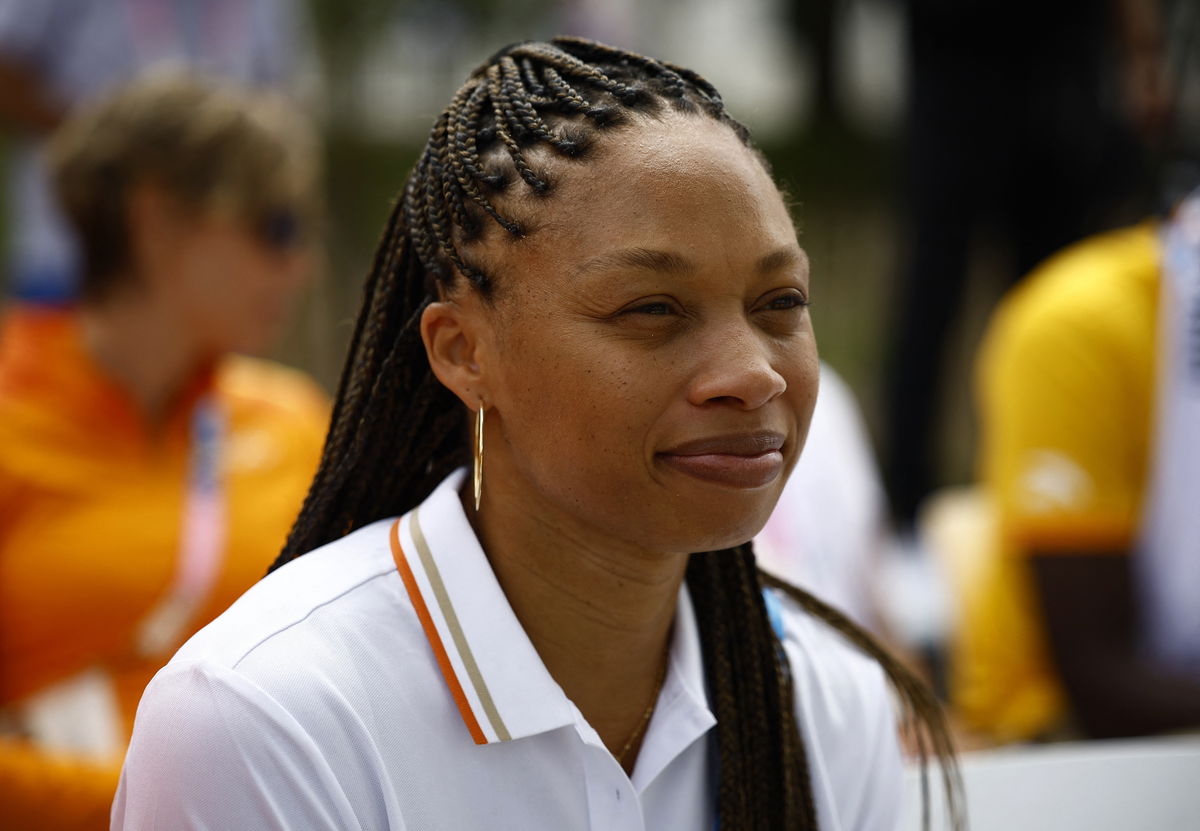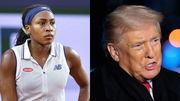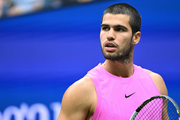
Reuters
Paris 2024 Olympics – IOC President Thomas Bach at Village Plaza – Olympic Truce Wall inauguration – Olympic Village, Saint Ouen sur Seine, France – July 22, 2024. Athlete Allyson Felix of the U.S. attends the inauguration. REUTERS/Sarah Meyssonnier

Reuters
Paris 2024 Olympics – IOC President Thomas Bach at Village Plaza – Olympic Truce Wall inauguration – Olympic Village, Saint Ouen sur Seine, France – July 22, 2024. Athlete Allyson Felix of the U.S. attends the inauguration. REUTERS/Sarah Meyssonnier
When Allyson Felix challenged the norms of professional track and field, she did not do so to be applauded. She did it to shift the ground. Her public stand against Nike’s treatment of pregnant athletes, and the subsequent departure from her sponsor to launch her own brand, was never just a personal act of resistance. It was a deliberate step toward creating space for others to live and work on their own terms. This week, that vision found quiet reinforcement as this Olympian became the first athlete to receive a second maternity grant from the USA Track & Field Foundation.
Watch What’s Trending Now!
So who is this Olympian? Well, it is none other than Marisa Howard. A steeplechase specialist and mother of one, Howard accepted her second grant while expecting her second child. The achievement is not ceremonial. It is concrete. It affirms that the policy changes Felix once fought for are beginning to take root within the sport’s institutions. Howard’s first maternity grant came in 2022 during her first pregnancy. She returned to the track not just to compete but to excel, securing a spot on the U.S. Olympic team for Paris 2024 after a third-place finish at the Trials. Her performance, a 15-second personal best of 9:07.14, placed her fifth on the U.S. all-time list in the event.
In Paris, she competed in Round 1, Heat 3, clocking 9:24.78 and placing seventh. But the results tell only part of the story. What defines Howard’s trajectory is the infrastructure that allowed her to pursue elite sport while raising a child. A framework that did not exist for many women before her, including Felix.
ADVERTISEMENT
Howard’s appreciation for the grant program is direct and unsentimental. “Honestly, the Foundation has been such a huge part of my life for the past five years,” she said. “Since I was awarded my first grant in 2021, they’ve really funded my career. I don’t have a shoe sponsor, and every time I get one of these grants I’m just in shock, in disbelief, and in awe that they’re willing to invest this much money into American athletes. I’m very, very thankful and forever grateful.” That statement underscores what Felix had long argued.
View this post on Instagram
Financial stability is not a luxury. It is a prerequisite for sustained excellence. The USATF Foundation’s maternity grant program, designed to support female athletes through pregnancy and return, has become a critical mechanism for preserving careers that might otherwise be curtailed. In Howard’s case, it has enabled her to move forward with clarity about her goals and the resources needed to meet them.
ADVERTISEMENT
Looking ahead, Howard anticipates a return to racing by early next year. With no World Championships scheduled for the steeplechase in 2025, she has expressed interest in exploring the 1500m or 5K. But her sights remain firmly fixed on Los Angeles 2028. Her approach is methodical, not speculative, grounded in experience and a clear understanding of what is required to perform at the highest level.
She also speaks candidly to women weighing similar decisions. “There’s so much gratification in doing both things that you love at the same time,” she said. “I didn’t know how much I would love motherhood until I actually had a child. It’s my favorite thing in the world. Now that I have a three-year-old that says, ‘Mommy, I love you,’ there’s just nothing better than snuggling your little children, and I’m very thankful that I’m able to pursue both passions at the same time.” Well, the moment does not belong to Howard alone.
ADVERTISEMENT
It belongs to every woman who insisted that motherhood was not a detour, but a dimension of a full athletic life. It belongs to the institutions that have begun, at last, to listen. And it belongs to the legacy of athletes like Felix, who refused to stay quiet when silence was the easier choice. Through this second grant, the baton has been passed. Not ceremonially, but structurally. And the race continues. But all of this started with the icon, Allyson Felix.
Allyson Felix forced Nike to change, and she did it on her terms
When Allyson Felix challenged Nike over its treatment of pregnant athletes, she was not attempting to spark a revolution. She was attempting to retain her dignity. A decorated Olympian with global recognition, Felix found herself offered a 70 percent pay cut at a time when she was preparing to start a family. She was told, in effect, that her worth had diminished. What followed was not a publicity campaign, but a calculated decision to speak plainly about inequity, at great personal and professional risk.
ADVERTISEMENT
“I didn’t want to ruffle feathers,” Felix told an audience at the Bentonville Film Festival, where She Runs the World, a documentary chronicling her battle with Nike, was screened. She further added, “It was still terrifying and uncomfortable and all those things, but there was definitely purpose behind it.” The film details tense negotiations with the company, which initially refused to guarantee protections around maternity. Felix and her brother, who manages her career, pushed back, ultimately prompting policy changes across the athletic apparel industry. Nike’s revised contract terms, implemented after public pressure and a congressional inquiry, now assure 18 months of pay and bonuses around pregnancy.
The documentary does not dramatize. It does not vilify. Instead, it presents a straightforward account of persistence. “Few people do the right thing every time right off the bat,” said co-director Matt O’Neill. “And I think it is a success story for everybody that the industry can change.” Felix’s decision to speak, and her insistence on contractual clarity, forced the largest brand in the field to reconsider its terms. The result is a measurable shift in policy. One that did not arrive by accident.
Top Stories
Phil Mickelson Has the Last Laugh After PGA Tour Protege Rejected His LIV Golf Offer

‘Disturbing’ Fake Messages Force Amanda Balionis to Issue Urgent Warning

Scottie Scheffler Takes Side With Blunt 12-Word Message Days After Brooks Koepka’s Return Announcement

“Hard Being a Black Woman”: Coco Gauff on Donald Trump’s Administration

WATCH: Carlos Alcaraz Lashes Out at His Coach and Brother in Tense Win at the Australian Open

Fired Sean McDermott Doesn’t Hold Back in Final Message to Bills Mafia As Locker Room ‘Sickened’ by HC’s Removal

ADVERTISEMENT
ADVERTISEMENT
ADVERTISEMENT